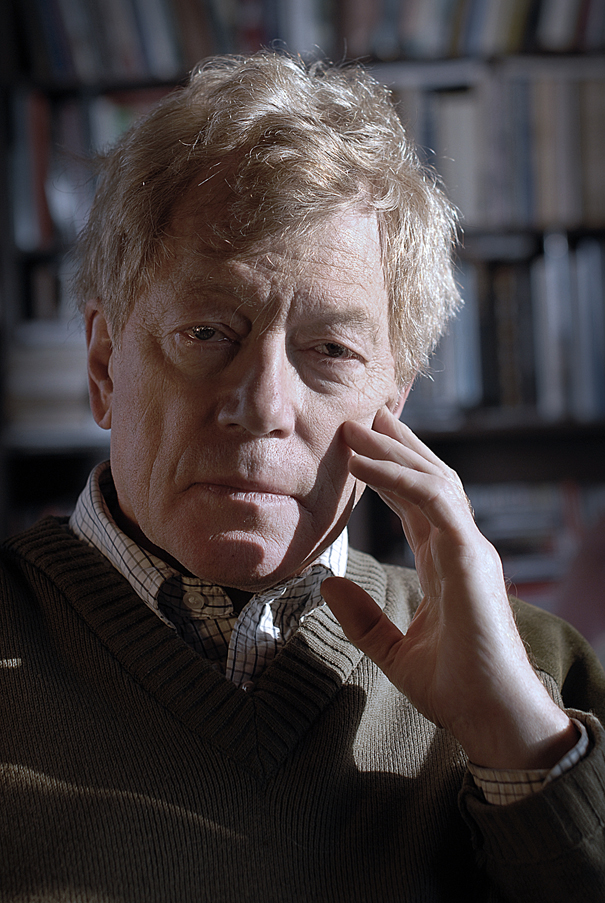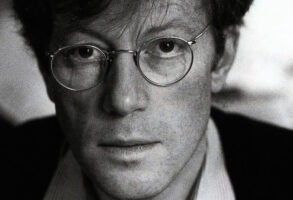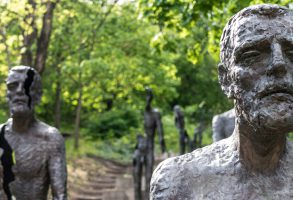January 13, 2020
 The Ethics and Public Policy Center mourns the death of EPPC Senior Fellow Sir Roger Scruton, who died on Sunday, January 12, at age 75.
The Ethics and Public Policy Center mourns the death of EPPC Senior Fellow Sir Roger Scruton, who died on Sunday, January 12, at age 75.
“We grieve the loss of our brilliant colleague Roger Scruton. We are deeply grateful that Roger made EPPC his American think-tank home for the past seven years. He has left a remarkably robust intellectual legacy,” said EPPC President Ed Whelan.
The author of more than 50 books on topics such as art, music, architecture, conservation, philosophy, and religion, Sir Roger was knighted by Queen Elizabeth II in 2016 for his “services to philosophy, teaching and public education.” In 2019, he earned recognition from the governments of Hungary, Poland, and the Czech Republic for his courageous anti-communist efforts and his legacy of moral and intellectual leadership.
See below for a running compilation of selected tributes to Roger Scruton.
***
Robert P. George, McCormick Professor of Jurisprudence and Director of the James Madison Program at Princeton University, and a member of EPPC’s Board of Directors (link):
Sir Roger was a distinguished philosopher—one of the best of our time. He was a valiant warrior against communist tyranny. He was a great upholder of beauty and of the idea and ideal of beauty. And he was a faithful friend.
And, in the New York Times, Professor George remembered Sir Roger’s legacy as a philosopher (link):
Moreover, he recognized that the most important things people build, even more important than the cathedrals and great works of art and music he so loved, are not primarily the result of planning. They develop organically over time, with trial and error, as the work of many hands (an example is the common law of England). Recognizing this, conservatives should, he argued, seek to protect these things against those who would tear them down out of a misguided zeal for what they saw as the demands of liberty, equality, social justice or even the free market.
Boris Johnson, U.K. Prime Minister (via Twitter):
RIP Sir Roger Scruton. We have lost the greatest modern conservative thinker – who not only had the guts to say what he thought but said it beautifully.
EPPC Senior Fellow Peter Wehner (via Twitter):
I met with him for lunch a few years ago-it was the first time I personally met him-and it was a wonderful occasion. I was honored to be in his presence, aware of his extraordinary contributions; and he was quite helpful on matters of faith.
National Review Online editorial (link).
Yuval Levin at NRO (link):
The work he leaves behind is a treasure for the ages. But if a single theme unites it, it would have to be his willingness, even eagerness, to stand courageously in defense of what he loved—and his confidence, born of deep learning and insight, that it was what deserved to be loved, and that others would see that if he showed them.
We have lost a true giant. RIP.
Michael Brendan Dougherty at NRO (link):
Scruton may be the only conservative of this generation whose work will be read 100 years hence. And while we pray for the repose of his soul, and for comfort for his family and close friends, we should also pray that then, unlike now, his work and his courage receive the recognition they deserve. Scruton has labored and sacrificed. He is not becoming “nothing” but the gentle, sweet, and courageous Knight who saved his home from the destroyers.
Jay Nordlinger at NRO (link):
Roger was brave, outstandingly brave — he had nerve….So grateful for this marvelous, brainy, benevolent fellow. A knight — “Sir Roger” — and not just literally.
Matthew Continetti at NRO (link).
Madeleine Kearns at NRO (link):
In a 2018 interview for National Review, Sir Roger told me that classical liberalism and conservatism have become closely aligned in today’s culture wars, in part “because there are so many people who wish to control us, and in doing so to wipe away the image of the past.” But he noted an important distinction: “Conservatives believe in unchosen obligations (pieties), whereas classical liberals think that the only source of obligation is choice.”
The most attractive piety of conservatism is, at least to me, a humble pursuit of lifelong learning. And in that regard, Scruton lived by example. May he rest in peace.
Anne Applebaum, Pulitzer-prize winning historian, staff writer at The Atlantic, Senior Fellow at the Agora Institute, Johns Hopkins University (via Twitter):
In the 1980s, Roger Scruton organized money and books for dissidents in Eastern Europe. I was one of the student couriers who helped smuggle them “across the iron curtain.” I am still grateful for what Roger did for them, and for me.
Rod Dreher at The American Conservative (link):
One of the great blessings of paradise is that there will be endless time for Roger Scruton to write good books. In fact, my idea of heaven is Roger Scruton’s home library….May his memory be eternal.
Steven Hayward at PowerLine (link):
Sir Roger deserves to be considered the greatest conservative thinker and writer of the last generation—full stop—certainly the most prolific and wide-ranging since G.K. Chesterton, having published more than 50 books and countless articles.
See also Steven Hayward‘s post “Roger Scruton Contra Mundum: Who’s the Greatest?” (link).
Emma Webb, Director of the Forum on Integration, Democracy and Extremism at Civitas (link)
It was striking that the greatest philosopher of our era passed away on the birthday of his 18th century equivalent — Edmund Burke. Such men rarely come about. Sir Roger Scruton will now join the ranks of great thinkers, alongside Burke, Kant and Hegel…
I first met Roger in my early 20s, at the beginning of my career. Whenever I had the honour of meeting him, over the following years, I was always astounded that in an age of ego, the only thing that dwarfed his titanic intellect was his gentlemanly kindness and humility.
Douglas Murray in the Spectator (link):
If he sometimes fitted uncomfortably with the age in which he found himself, it was principally because he did not believe in its guiding tone of encouraged animosity and professionalised grudge. He believed instead – and lived in – the spirit of a different age. One in which he encouraged his readers to share. That is a spirit of gratitude for what you have received, and forgiveness for what you have not.
Theodore Dalrymple in City Journal (link):
Scruton’s work was so broad-ranging that the term Renaissance Man seems hardly inappropriate. He published books on Kant and Spinoza, on Wagner’s Tristan and Isolde, on the aesthetics of music and architecture, on animal rights, on wine, on hunting, on the importance of culture, on the nature of God, on man’s relations with animals, and on many other subjects. He wrote novels and short stories of distinction, and two operas. The words of Dr. Johnson’s epitaph for Oliver Goldsmith come to mind: he left scarcely any style of writing untouched, and touched nothing that he did not adorn…
In his last and moving article in The Spectator, indeed in the last paragraph he published in his lifetime, he stressed the importance of gratitude for what one has been fortunate enough to inherit. Take nothing for granted, preserve what is worth preserving, understand the fragility of things, remember debts to the past as well as to the future, take delight in the world. Such was the lasting message of this exceptionally gifted man.
Paul Krause at the Imaginative Conservative (link):
Like moths attracted to the flame, students from all continents came together to discuss everything from music and aesthetics to politics and metaphysics with Sir Roger, who seemed to be the incarnate flame of wisdom. His encyclopedic knowledge allowed him to help all in our respective pilgrimages. He was our Virgil through hell and purgatory, and he left us at the top of the mountain, pointing to the light that lay beyond. Befitting a man of such humility, he once revealed to us that instead of being remembered as the world-class philosopher he was, he wished to be remembered as the organist for the small Anglican parish of which he was a member.
Obituary in the Washington Post (link):
The author of more than 50 books, Mr. Scruton wrote about morality, politics, aesthetics, architecture, Kantian philosophy and the joys of hunting, in addition to penning two operas and several novels. He was the founding editor of the Salisbury Review, a conservative journal, and for 21 years taught philosophy at Birkbeck, part of the University of London. Oxford historian Timothy Garton Ash called him “the kind of provocative, sometimes outrageous Conservative thinker that a truly liberal society should be glad to have challenging it.”
Bryan Baise at ERLC website (link):
The final words he ever wrote in public were embodiments of his life and writing: “Coming close to death you begin to know what life means, and what it means is gratitude.” My gratitude to him cannot be fully expressed in words. I’ve done my best here, but they pale in comparison to what he has done for me. My Christian faith is stronger because of him. I am a better human being because of Scruton.
Christina Hoff Sommers at AEI (link):
Roger was a connoisseur of wonderful things — in art, philosophy, architecture, music, nature. He was both a critic and an artist. He became a conservative because he knew how hard it is to create truth and beauty and how easy and tempting it is to tear it all down.
The Acton Institute’s Samuel Gregg at Law and Liberty (link):
It’s difficult to understate the late Roger Scruton’s importance in not just keeping alive the idea that there is something distinct called “the West,” but also for rigorously defending that idea against those who regard all talk of Western Civilization as reeking of patriarchy, neo-colonialism, and various words to which the suffix “phobic” is predictably attached. At a time when any positive reference to the West has become a career-killing move in many universities, Scruton could be relied upon to explain clearly, patiently and in detail why there is something called Western Civilization and why it should be studied and bolstered.
Owen Strachan of the Center for Public Theology at Midwestern Baptist Theological Seminary (link t0 podcast).
Theodore Roosevelt Malloch in American Greatness (link):
Roger was in fact, a giant, the likes of which we are unlikely to see any time soon or ever again. He was the thinking conservative of the century, surely in Britain and Europe. But it is his multidimensional perspective that most impresses. He was not a siloed man of tunnel vision or just one puffed up sub-specialization. Roger knew the whole fabric of reality and appreciated the need to tie it together, to weave a whole cloth. He was truly learned. This made him rare and unique.
Helen Dale at Law and Liberty (link):
I encountered Roger Scruton (long before he was knighted) for the first time at Oxford, where he delivered guest seminars for BCL, MPhil, and DPhil students reading jurisprudence. He was there at the invitation of Professor Tony Honoré, a Roman law specialist, and Professor John Gardner, a scholar of legal philosophy. The two Dons ran the course jointly; Sir Roger was a “ring-in.”
People are often surprised when I tell them Scruton taught me as part of a law degree, but he was a qualified barrister — what Americans call a “trial attorney” — among his many other accomplishments. Notably, he never practiced: he couldn’t afford to take a year off work to complete a pupillage. In 1978, paid pupillages (something I had the good fortune to experience) were still in the future. This small detail of Scruton’s employment history is a reminder that although his name was associated with High Toryism, his origins were humble and his early progress as an intellectual came about through scholarships.
The seminars in question were delivered at All Souls, Oxford. They were very good seminars, too. Our classes were held in part of the college called the “Old Library.” I suspect we broke every health-and-safety rule known to man. Students finished up sitting in window ledges and on the floor. Possessed of a resonant, sonorous voice and an extraordinary head of what I came to call “Mad Professor Hair,” Scruton had an uncanny ability to speak in complete sentences, something I had not seen before and have only rarely seen since. Everything he said was extraordinarily thoughtful even when one disagreed with it with every fibre of one’s being.
Bruce Anderson in the Spectator (link):
Roger’s conservatism had a simple foundation. He sought to make sense of the human condition. This led him to the Himalayan peaks of philosophy: Kant, Wagner. He also believed that conservatives should engage with the endless search for social order and civility.
Bradley J. Birzer at The Imaginative Conservative (link):
As it turns out, Scruton was simply brilliant, and his insights ranged far and wide, dealing with everything from economics to politics to culture to religion. From my perspective, especially in 2020, he was the most important and thoughtful conservative living after Russell Kirk and Robert Nisbet.
Our loss of Scruton goes well beyond the personal. As with Tolkien, our loss of him is a huge wound in the side of western civilization (or what remains of it).
Obituaries:







